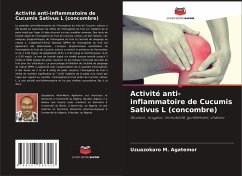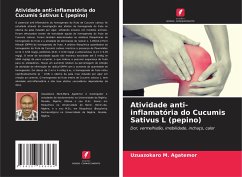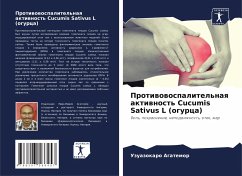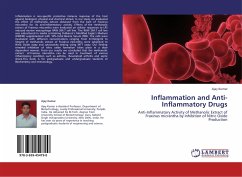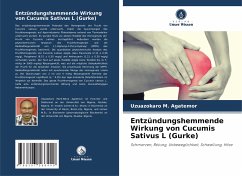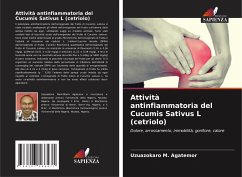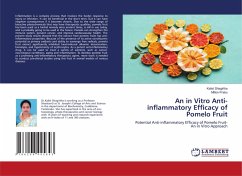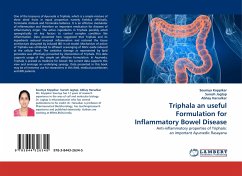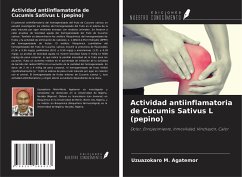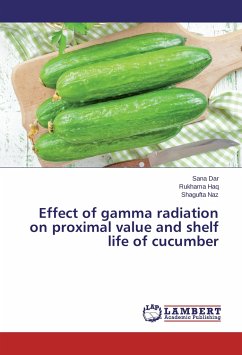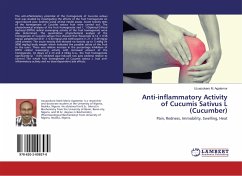
Anti-inflammatory Activity of Cucumis Sativus L (Cucumber)
Pain, Redness, Immobility, Swelling, Heat
Versandkostenfrei!
Versandfertig in 6-10 Tagen
24,99 €
inkl. MwSt.

PAYBACK Punkte
12 °P sammeln!
The anti-inflammatory potential of the homogenate of Cucumis sativus fruit was studied by investigating the effects of the fruit homogenate on agar-induced paw oedema using animal model assays. Acute toxicity tests of the homogenate of Cucumis sativus fruit were carried out. The phytochemical analyses of the fruit homogenate and 1, 1-Diphenyl-2-Picryl Hydrazyl (DPPH) radical scavenging activity of the fruit homogenate were also determined. The quantitative phytochemical analysis of the homogenate of Cucumis sativus fruit showed that flavonoids (2.14 ± 0.56 mg/g), polyphenol (8.51 ± 0.50 mg/g...
The anti-inflammatory potential of the homogenate of Cucumis sativus fruit was studied by investigating the effects of the fruit homogenate on agar-induced paw oedema using animal model assays. Acute toxicity tests of the homogenate of Cucumis sativus fruit were carried out. The phytochemical analyses of the fruit homogenate and 1, 1-Diphenyl-2-Picryl Hydrazyl (DPPH) radical scavenging activity of the fruit homogenate were also determined. The quantitative phytochemical analysis of the homogenate of Cucumis sativus fruit showed that flavonoids (2.14 ± 0.56 mg/g), polyphenol (8.51 ± 0.50 mg/g) and Anthocyanin (1.21 ± 0.39 mg/g) were present. The acute toxicity test showed no toxicity up to 5 ml/kg ( 5000 mg/kg) body weight which indicated the possible safety of the fruit to the users. There was relative increase in the percentage inhibition of DPPH radical scavenging activity with increased amount of the homogenate. At doses of 2 ml and 4 ml/kg b.w., the fruit homogenate significantly (p 0.05) inhibited agar-induced raw paw oedema relative to control. The whole fruit homogenate of Cucumis sativus L. had anti-inflammatory activity and no dose-dependent side effects.



